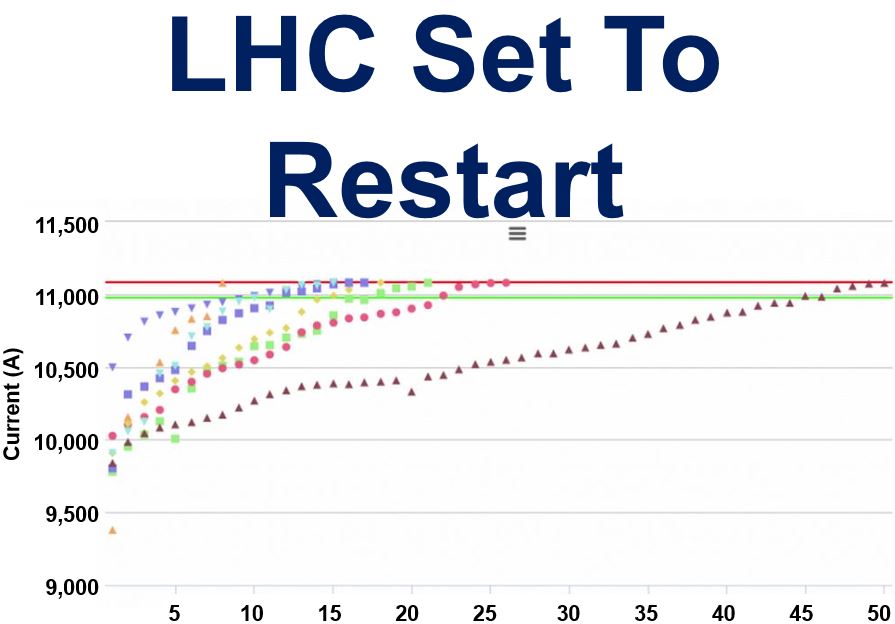The world’s largest and most powerful particle accelerator, the Large Hardon Collider (LHC), is set to restart this weekend after scientists fixed a short circuit that postponed the arrival of particle beams in March.
According to CERN (Conseil Européen pour la Recherche Nucléaire – European Council for Nuclear Research), which built and operates the LHC, the particle collider’s restart was delayed by an intermittent short circuit in one of its magnet circuits identified on 21st March. At the time it said the delay could take several weeks.
CERN informed today that teams are completing final tests, with the first beams likely to be circulating sometime between Saturday and Monday.

Graph showing that, as of 2 April, all LHC magnets have completed their training to reach the target currents for beams at 6.5 TeV. The coloured symbols represent each of the LHC’s 8 sectors; x axis is time in days. (Image: CERN)
Frédérick Bordry, CERN’s Director for Accelerators and Technology, said:
“We are confident of being able to restart the machine over the weekend, as all of the tests performed so far have been successful.”
When the Large Hadron Collider and the whole accelerator chain are running, operators will work in shifts throughout day-and-night in the control room. They will try to circulate beams in the LHC in both directions, at their injection energy of 450 GeV “as soon as all the lights are green.”
LHC upgrade
For the last two years, the LHC has undergone maintenance and a major upgrade. It is today 65% more powerful than it was in 2013.
The LHC is a machine that accelerates subatomic particles to near light speed by means of electric or electromagnetic fields, i.e. it is a particle accelerator. The accelerated particles crash into other particles, either as a way to generate high-energy X-rays and gamma rays, or as a research technique.
When it is up and running, LHC’s collision energy will be 13 TeV (Terraelectron-Volts) compared to its previous 8 TeV.
LHC physically proved that the Higgs boson exists, a subatomic particle sometimes referred to as the ‘God Particle’, that had only been known about theoretically.
Physicists believe there are more Higgs bosons, in fact, a whole family of them (five types). Proving that they exist would be the physics achievement of the century, scientists say. They hope LHC will do this.
Many scientists believe the now mightier LHC might prove that the Big Bang – the birth of our Universe – never happened.
According to CERN, particle collisions at an energy of 13 TeV could begin as early as June.
Video – What is CERN?

